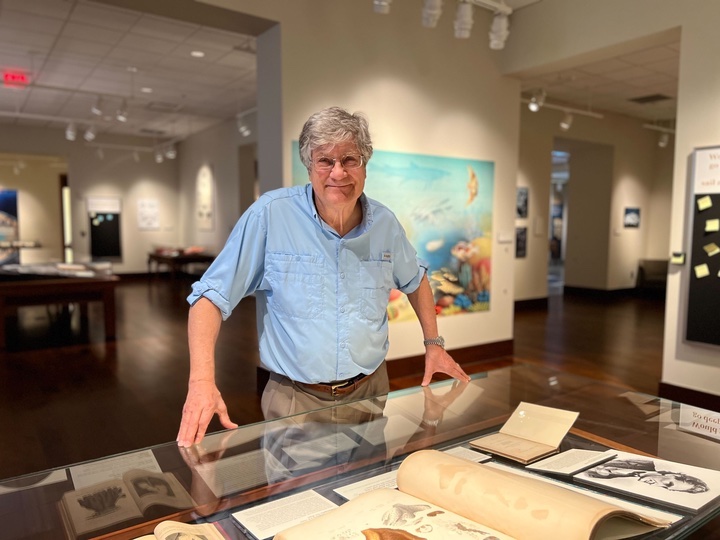Hannah Freeman

Mayor Kelly Girtz speaks to UGA students about the Athens-Clarke County Future Land Use Plan at Grady School of Journalism and Mass Communication on April 19. Among the topics he discussed, affordable housing for Athens residents was a primary concern. (Photo/ Hannah Freeman).
Athens’ population is expected to increase by about 30,000 residents over the next 20 years, which includes the students expected to enroll in UGA’s forthcoming School of Medicine. The Athens-Clarke County Commission and Mayor Kelly Girtz are working on a Future Land Use Plan that will help determine zoning and funds allocation to accommodate this population boom.
Girtz announced in an April 19 press conference at the University of Georgia that he will propose a $1 million fund toward affordable housing in the next fiscal year budget. The ACC mayor and commission budget work session is scheduled for Thursday, May 2.
“We’re part of that swath of communities that are growing rapidly, and we need to be responsive to this,” Girtz said. “And we recognize… that this was a critical issue here because what everyone has experienced is that affordability is decreasing.”
The mayor’s proposal raises many questions for students about the impact it will have on their ability to live off-campus. Girtz assured in the news conference that the plan will benefit all Athens residents by building on top of existing infrastructure to minimize costs.
“If UGA is going to add another 10,000 students over the next 20 years, we want to make sure that there are places not only for students, but everybody else to live as well,” said Girtz.
Part of Girtz’s plan entails concentrating student-oriented housing in the downtown area where there is an abundance of dormant parking lots and buildings. He said that if the county did not permit such projects, there would be additional pressure on neighborhoods to accommodate student housing.
“It’s almost like a game of musical chairs,” said Girtz about the housing supply. “If there aren’t enough chairs and there are too many people, every one of those persons is going to be swirling around looking to buy a home, potentially in a historically African-American neighborhood.”
Though the housing supply may be limited, Girtz expressed his desire to open up the single-family zoning ordinance to allow up to three non-related individuals in a single dwelling. The current ordinance allows for two non-related individuals. Doing so could provide students more options for off-campus housing, but homeowners are not likely to approve of such plans.
“Housing is really expensive,” said fourth-year psychology student Durva Pai. “I genuinely feel like increased housing affordability will really help foster safer living situations for everyone, but it would also make finding a place to live more competitive.”
The Future Land Use Plan is still a work in progress, but Girtz continues to encourage public input from residents about the improvements they hope to see in Athens by taking an online survey, which is available until April 30. The county held public sessions in March and April, and drop-in opportunities remain available with Planning Department staff through April 30 from 9 a.m.-4 p.m. at its offices on 120 W. Dougherty St.
Why I Wrote the Story:
The Reporting I news conference with Mayor Kelly Girtz was my first experience sitting in on a public hearing with my fellow reporters. I learned many people will have questions, and most will not get a chance to ask them. I noticed most of my peers had similar concerns about the Future Land Use Plan and how it would impact the students at UGA. I wanted this to be the focus of my story because the future of Athens really depends on young citizens, including those at UGA.

